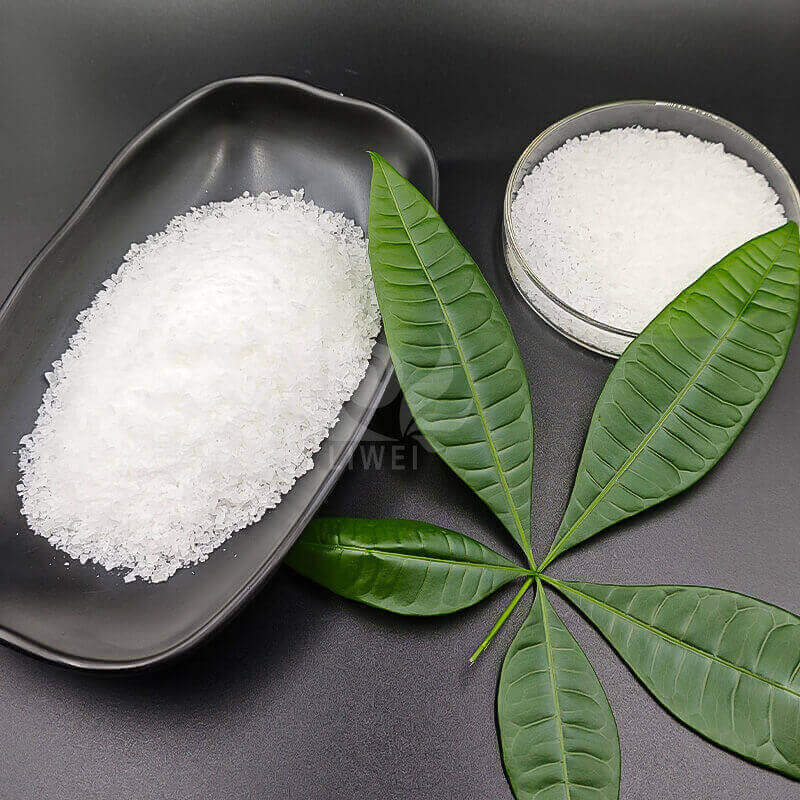
Polyvinyl Alcohol (PVA) 098-30 & PVA 1899
ANHUI LIWEI CHEMICAL CO.,LIMITED
[Introduction]
PVA, categorized as a polyvinyl alcohol (PVA), is produced through an alcoholysis reaction and subsequent polymerization of vinyl acetate. This material manifests as a white, powdery substance, characterized by stability and non-toxicity, and it exhibits remarkable water solubility. When introduced to water at room temperature, it readily dissolves to create a stable colloid.
Specifications
| New Standard | 098-30 |
| Old Standard | 18-99 |
| Hydrolysis (mol%) | 98.0~98.8 |
| Viscosity (mPa.s) | 28.0~32.0 |
| Volatile(%) ≤ | ≤5 |
| Ash (wt%) ≤ | ≤0.7 |
| PH | 5-7 |
| Purity (wt%) | ≥93.5 |
Packing & Storage
| Packing | Our polyvinyl alcohol products are packed in craft paper bag. Net weight 12.5kgs or 20kgs if floccule, Net weight 25kgs /20kgs if powder or Granule. |
|---|---|
| Storage | Powder 20°C 2 years; Floccule 20°C 2 years. |
| Shipping | Room temperature 5-30℃ in China; may vary elsewhere |
Free Quote
Liwei PVA is one of the top 10 PVA factories and the top 100 strongest enterprises in anhui province.In 2010,Liwei PVA is evaluated as advanced and high technical company. We mainly deals in polyvinyl alcohol,PVA,PVA fiber and raw materials for producing PVA like vinyl acetate.
For samples, pricing, or more information, please call us at 0086-25-52397803 or mail to info@china-pva.net or fill out the following form. We will respond to you as soon as possible.
Tel: 0086-25-52397803
E-mail: info@china-pva.net


Frequently Asked Questions
What is Polyvinyl Alcohol (PVA)?
Key Properties of PVA
Water Solubility: One of the most prominent characteristics of PVA is its solubility in water, which varies depending on the degree of hydrolysis and polymerization.
Film-Forming Properties: PVA can form strong, transparent, and flexible films.
Adhesive Properties: Its adhesive properties make it widely used in the paper and packaging industries.
Chemical Resistance: PVA has good resistance to oils, greases, and solvents, but is easily degraded by strong acids and bases.
Biodegradability: While PVA is not completely biodegradable, it can break down under certain conditions, making it more environmentally friendly than other synthetic polymers.
Industrial Applications of PVA
Textile Industry
Sizing Agent: PVA is used as a sizing agent in textile manufacturing to protect yarns during the weaving process.
Finishing Agent: It provides a smooth surface to fabrics, enhancing their appearance and durability.
Paper and Packaging
Adhesives: PVA-based adhesives are favored for their strong bonding and fast-drying properties.
Coatings: Used in paper coatings to improve printability and water resistance. Construction
Cement Additives: PVA is added to cement and mortar to enhance flexibility and adhesion.
Tile Adhesives: It improves the bond strength of tile adhesives.
Pharmaceuticals
Drug Delivery: PVA is used in the formulation of controlled-release drug delivery systems.
Capsule Coatings: It is used as a coating material for capsules and tablets to control dissolution rate.
Cosmetics and Personal Care
Facial Masks: PVA is a common ingredient in peel-off facial masks due to its film-forming ability.
Hair Gel: It is used in hair styling products due to its ability to form flexible films.
Packaging
Water-Soluble Films: PVA is used to produce biodegradable packaging films that dissolve in water and reduce plastic waste.





